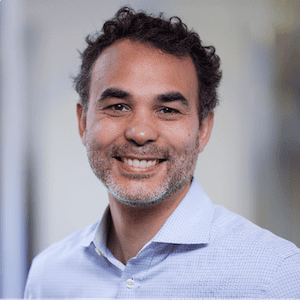-
The Rise of a New Asset Class: Can ‘PAYGo Finance’ Connect Investors to Low-Income Customers?
Lendable has pioneered a marketplace lending platform that connects alternative lenders in East Africa with impact and institutional debt investors, to provide financing for leased assets like solar panels and motorcycles. According to BFA, providing these alternative lenders with structured debt financing could potentially give rise to a new asset class: PAYGo finance. If successful in raising funds from investors at scale, the Lendable approach could bring financing for low-income individuals full circle.
-
How Flexible Financing, Solar Panels and Data Could Be Key to Financial Inclusion
With over 1 million units installed in the past four years, the PAYGo financing model is already unlocking significant growth for the off-grid solar industry. But the sector also faces formidable challenges. FIBR, a project by BFA in partnership with Mastercard Foundation, is exploring ways PAYGo solar can leverage data to make better point-of-sale decisions, customize product offerings, engage and retain agent networks, inform future follow-on products, and build linkages with other financial service providers.
-
Want to Know How to Properly Measure Financial Inclusion? Copy the Retailers.
To better understand and measure how people use financial services, i2i looked outside the industry to the retail sector, which is at the forefront of how to collect and analyze data on how consumers engage with their services. In particular, retailers understand key usage indicators fundamental to their business; namely recency, frequency, monetary value and duration. That led i2i to apply these indicators while studying how to improve financial services.
- Categories
- Uncategorized
-
The Future of the Graduation Approach: Taking a Proven Anti-Poverty Measure to Scale
How can the "graduation" approach to fighting extreme poverty achieve a scale commensurate with extreme poverty itself? Increasingly, the answer is to embed graduation within government-run social protection programs that already operate at massive scale. MetLife Foundation's Krishna Thacker explores why the approach works, and how innovative organizations are taking it to the next level.
- Categories
- Education
-
Subscribe to NextBillion Notes in July, Get Free Chapter of Jonathan Lewis’ New Book, ‘The Unfinished Social Entrepreneur’
If you're into social business, you're probably familiar with Jonathan Lewis. He has founded multiple social enterprises – and now he's sharing his insights in a new book, "The Unfinished Social Entrepreneur." It's a great read, and all the book's profits will be donated to social justice causes. To celebrate our Entrepreneurship Month, we're giving away a free chapter to all subscribers of NextBillion Notes, our e-newsletter. Sign up in July to take advantage of this free offer.
- Categories
- Social Enterprise
-
Field of View: How a Chilli Cash Crop Helps Subsistence Farmers Shape Their Future
During a three-year process designed to assess the impact of growing a chilli cash crop on small farmers living in southern Africa, it was discovered that when a family earned just $500 more of net income per year, the money materially impacted at least two categories of their basic human needs. But the most profound impact, writes Tanner Methvin, was that of self-determination.
- Categories
- Agriculture
-
Through Social Investing, Asia’s ‘On a Journey to Help it Help Itself’
AVPN's recent annual conference, known as “Asia’s top social investment event,” attracted representatives from 32 countries, including 18 Asian ones, reflecting the reality that activity is taking off across the region, says John-Paul Hamilton of Dasra. And it seemed fitting that the conference centered on collaboration, which is more essential than ever to ensure a progressive and suitable continuum of funding.
- Categories
- Investing, Social Enterprise
-
Three Ways Entrepreneurs Can Tackle Climate Change (Hint: It’s Not Just About Scale)
There are ways entrepreneurs can make sizeable impacts on climate change without Facebook-like growth curves. Jean-Louis Racine says investors should follow the lead of the venture capital sector and support startups that won't grow or be profitable. Traditional impact metrics such as goods sold, customers served, revenues generated or jobs created no longer apply. The best way to catalyze a climate technology market is to help ensure that innovative high-risk, low-growth ventures don't fall through the cracks.
- Categories
- Energy, Environment, Technology










